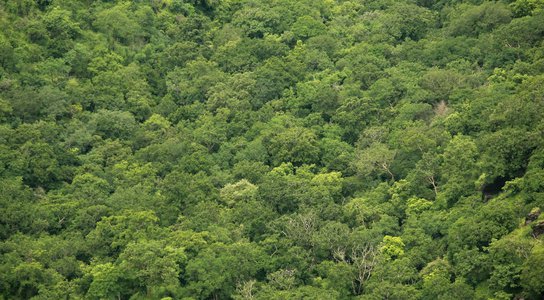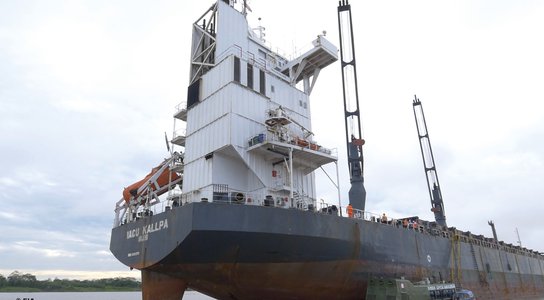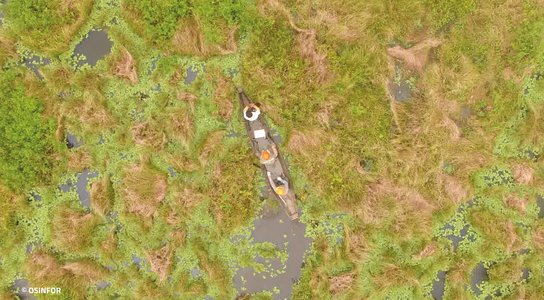Ask anyone who knows anything about Peru’s timber sector this question: On a scale from 1 to 5 (1: strongly disagree, 5: strongly agree), would you say that timber accompanied by official documents guarantees that it is legal?
Then wait for the knowing smile, rolling eyes, an exasperated sigh. Anything but a 5 or even a 4.As Global Witness recently
exposed, following an undercover
investigation into Peru’s biggest timber scandal,
having the correct documents means little or nothing. That is because they often
include falsified information. And the exporters or other buyers know
this, despite what they claim publicly about being “buyers in good faith.”
Why do they make this claim? Because Peru’s Penal Code states that if you know or “could presume” that your timber is of “illicit origin” you are committing a crime – and you could go to prison for up to seven years.
Of course, in private they tell a different story, as our investigation shows. We caught on undercover camera three of the main exporters transporting timber on the Yacu Kallpa ship in late 2015 from the city of Iquitos, in the heart of Peru’s Amazon, towards the US. It never made it. The now-notorious Yacu Kallpa was detained in Mexico in early 2016, and several months later the government’s forest inspections agency, OSINFOR, concluded more than 96% of the timber onboard had been illegal.
As you’d see if you watched the videos, the exporters talk through a range of creative means to launder timber in Peru. They explain how it is common to obtain official documents to extract timber from one area, but instead use them to make timber from another area appear legal. They also explain how permits specifically for small-scale extraction - in theory meant for local infrastructure and development - have been fraudulently used to launder large volumes of timber from other parts of the forest. In addition, our research shows how much of the timber on the infamous shipment came from areas where OSINFOR had reported illegalities weeks – and sometimes months – before it left Iquitos.
A lacklustre response will not make this problem disappear
Three days after we made the videos public, the Ministry of Agriculture and Peru’s forest authority, SERFOR, responded with a statement. They didn’t mention Global Witness by name or even acknowledge the existence of the videos, but referred vaguely to “recent publications in foreign media reported by local media.” Effectively, they disregarded our research as dated, saying it refers to a case that occurred before a new legal regime came into force and that the illegalities reported “have not taken place again.”
The videos appear to have been met with resounding silence from the companies we exposed. We wrote to the three exporters caught on undercover camera - together with all the other eight companies exporting on the late 2015 Yacu Kallpa shipment - but only one, Inversiones La Oroza, responded to our allegations, effectively repeating the same claim “we had the correct documents.” Ironically, Oroza is the only company which, to date, has been blocked from exporting to the US.
There is more. The Center for International Environmental Law (CIEL), based in Washington DC, has just published further damning research. Its report “Continuous Improvement” in Illegal Practices in the Peruvian Forest Sector shows how, among other things, high levels of timber of dubious legal origin have been exported from Peru to countries that don’t prohibit the entry of illegal timber, such as China and Mexico, while countries that are stricter, like France and the US, have been importing much lower levels of timber of dubious legality.
It is inconceivable this is a coincidence. CIEL suggests that companies may be exploiting OSINFOR’s online transparency system, SIGO, which is intended to stop illegal practices, to export illegal timber to countries that look the other way. “The question is: how exactly are they [exporters] using SIGO? As a tool to increase transparency or as a new way to evade it?” CIEL asks.
What needs to happen next?
Back to the Yacu Kallpa specifically, the story is far from over. Public prosecutors’ offices specialising in environmental crimes in Iquitos and other Amazon towns are currently investigating the late 2015 shipment. This could be the first time that timber exporters in Peru are prosecuted – a sobering sign of the historic impunity in the timber sector. The prosecutors face an immense challenge, and it is essential that the necessary resources are provided so they can proceed as effectively as possible.
Let’s be clear: the Yacu Kallpa scandal might seem like an isolated incident, but actually it is an almost perfect illustration of a problem that has been widespread across Peru’s Amazon for decades.
Setting a precedent through the effective investigation and prosecution of some of the most powerful players in the supply chain would send a strong signal that the trade of illegal timber in Peru is no longer tolerated. That, among many other things, is what is required - rather than vague statements from SERFOR.
Laura Furones leads the Peru
campaign at Global Witness


